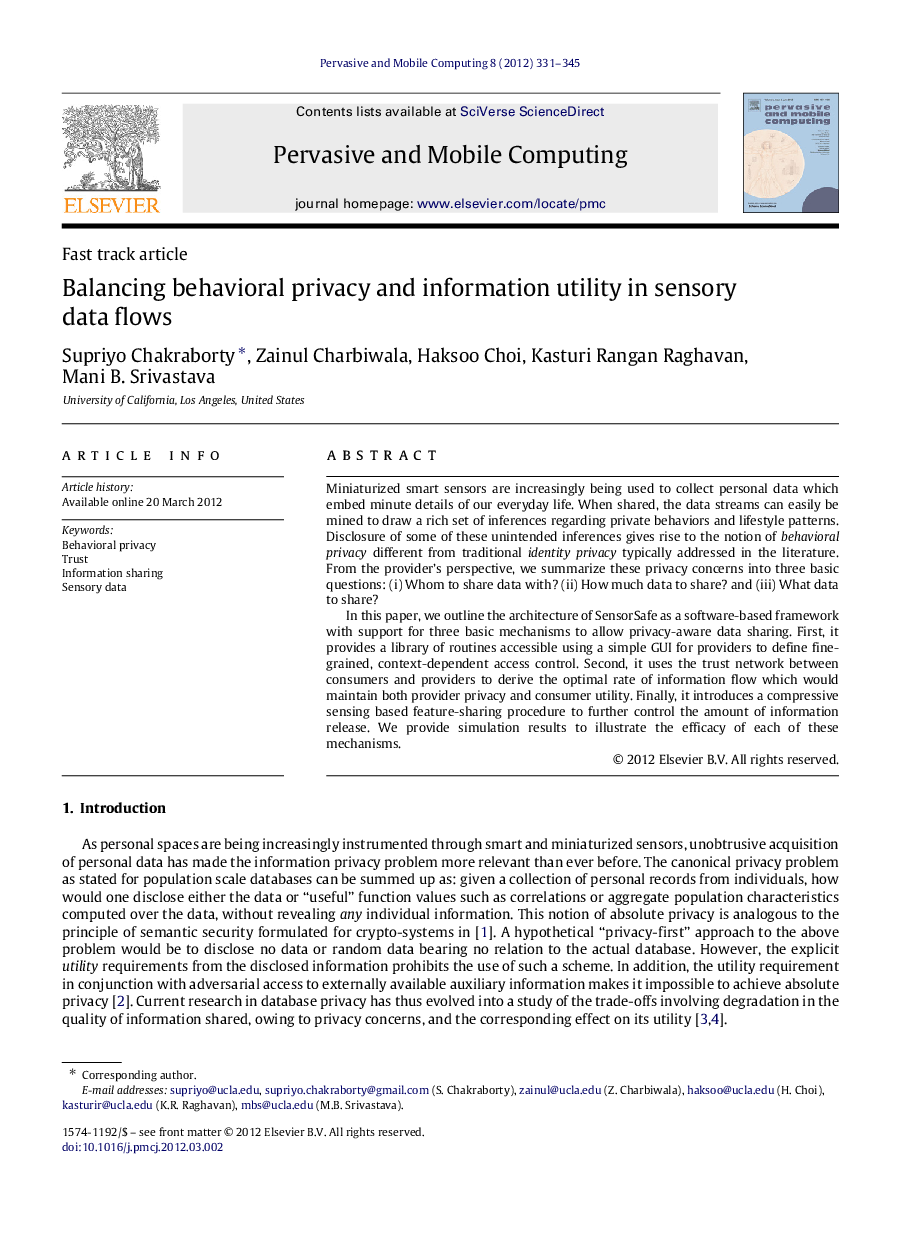| Article ID | Journal | Published Year | Pages | File Type |
|---|---|---|---|---|
| 466118 | Pervasive and Mobile Computing | 2012 | 15 Pages |
Miniaturized smart sensors are increasingly being used to collect personal data which embed minute details of our everyday life. When shared, the data streams can easily be mined to draw a rich set of inferences regarding private behaviors and lifestyle patterns. Disclosure of some of these unintended inferences gives rise to the notion of behavioral privacy different from traditional identity privacy typically addressed in the literature. From the provider’s perspective, we summarize these privacy concerns into three basic questions: (i) Whom to share data with? (ii) How much data to share? and (iii) What data to share?In this paper, we outline the architecture of SensorSafe as a software-based framework with support for three basic mechanisms to allow privacy-aware data sharing. First, it provides a library of routines accessible using a simple GUI for providers to define fine-grained, context-dependent access control. Second, it uses the trust network between consumers and providers to derive the optimal rate of information flow which would maintain both provider privacy and consumer utility. Finally, it introduces a compressive sensing based feature-sharing procedure to further control the amount of information release. We provide simulation results to illustrate the efficacy of each of these mechanisms.
